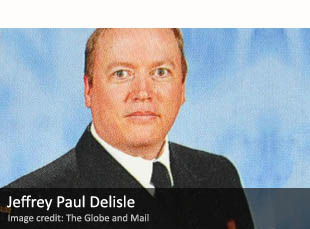Canada investigating claims of secret Chinese police stations in Montreal
March 15, 2023 Leave a comment
 AUTHORITIES IN CANADA ARE reportedly probing claims that the Chinese government is operating at least two “clandestine police stations” in Montreal, which allegedly monitor the activities of Chinese citizens and Canadians of Chinese origin. The announcement comes less than four months after a similar investigation took place into the alleged existence of four illegal Chinese police stations operating in the Toronto area.
AUTHORITIES IN CANADA ARE reportedly probing claims that the Chinese government is operating at least two “clandestine police stations” in Montreal, which allegedly monitor the activities of Chinese citizens and Canadians of Chinese origin. The announcement comes less than four months after a similar investigation took place into the alleged existence of four illegal Chinese police stations operating in the Toronto area.
The investigations were sparked by a report issued in 2022 by Safeguard Defenders, a Spanish-based non-government organization that focuses on the state of human rights in China. The report, titled “110 Overseas: Chinese Transnational Policing Gone Wild”, claimed that China’s Ministry of Public Security, in association with Chinese diplomatic facilities, operated dozens of clandestine police stations around the world. Their official mission, according to the report, was to service the needs of Chinese citizens living abroad, as well as visitors from China. At the same time, however, these clandestine police stations were “actively […] engaging in covert and illegal policing operations” against Chinese citizens and expatriates, according to Safeguard Defenders.
Last Thursday, the Royal Canadian Mounted Police (RCMP) field office in Quebec said it was “carrying out police actions aimed at detecting and disrupting […] foreign state-backed criminal activities” in the Montreal area. On the same day, Canadian Prime Minister Justin Trudeau pledged during a Parliamentary session that his administration would “take every measure to protect Canadians from unacceptable actions by hostile authoritarian regimes”.
The Chinese embassy in Ottawa did not respond to media requests for comment. Last year, in response to the RCMP’s investigation in Toronto, the embassy had said that the alleged clandestine police stations were service centers run by volunteers and not by Chinese diplomatic or law enforcement staff. It also argued that the mission of these centers were to provide consular services to Chinese citizens in the midst of the disruptions that were caused by the COVID-19 pandemic. In a statement issued last Friday, Chinese Foreign Affairs Ministry spokesperson Mao Ning accused Canada of “sensationalizing and hyping the matter [in order to] attack and smear China”.
► Author: Joseph Fitsanakis | Date: 15 March 2023 | Permalink
 A government watchdog in Canada is preparing to hold a series of closed-door hearings to weigh accusations that the country’s intelligence services illegally spied on law-abiding activists opposing the construction of oil pipelines. The British Columbia Civil Liberties Association (BCCLA) sued the Royal Canadian Mounted Police (RCMP) and the Canadian Security Intelligence Service (CSIS) in February 2014,
A government watchdog in Canada is preparing to hold a series of closed-door hearings to weigh accusations that the country’s intelligence services illegally spied on law-abiding activists opposing the construction of oil pipelines. The British Columbia Civil Liberties Association (BCCLA) sued the Royal Canadian Mounted Police (RCMP) and the Canadian Security Intelligence Service (CSIS) in February 2014, 
















